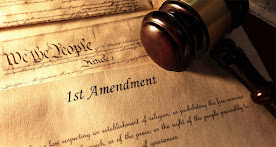Barbara Walters was born on September 25, 1931, in Boston, Massachusetts to parents, Dena Selett and Lou Walters. Barbara’s home life was not exactly ideal. Her late brother, Burton, passed before her birth, and her sister, Jacqueline, was mentally handicapped.
Though Walters is a Boston native, she did not spend the majority of her life there. In fact, due to her father’s job as a nightclub operator, Barbara attended schools in Boston, New York City, and Miami Beach.
After switching schools three times, Walters finally concluded her high school career at Miami Beach High School. Following this, in 1953, Walters graduated from Sarah Lawrence College with a bachelor’s degree in English.
Walters briefly worked as a secretary before securing her first position in journalism as the assistant to publicity director and Republican activist Tex McCary of WRCA-TV. Her hard work and dedication at the NBC affiliate clearly paid off as she soon became the writer and producer there.
Not long after that, Walters began working at CBS as the news and public affairs officer. There, she wrote the material for the Morning Show. Barbara’s CBS career was short-lived as she felt that further advancement was unlikely.
For that reason, Walter’s turned her talent back over to NBC in 1961. She first worked as a writer there until she became the co-host of the Today Show in 1974, making her the first woman to hold that title in the show's history. Her appearance on the show earned her the nickname, “Today Girl.”
Two years later, Barbara Walters advanced her career by accepting a five year, five million dollar contract with ABC, where she became the co-anchor alongside Harry Reasoner. This contract made her the highest paid news anchor at the time. This, of course, brought forth a lot of criticism and judgment from her male colleagues, especially from her fellow co-host Harry Reasoner.
In addition to her role as co-anchor of World News Tonight, Walters also served as a co-host on ABC’s program, 20/20, starting in 1979. The show covered a wide range of topics from investigative reporting to celebrity interviews to compelling reports. On the show, Walters was known for her in-depth interviews and lively debates with high-profile figures.While doing all of that, Barbara even hosted a series of programs called the Barbara Walters Specials. These specials featured exclusive interviews with world leaders, celebrities, and other important figures with some of the most notable guests being Fidel Castro, Vladimir Putin, and Monica Lewinsky.
In 1997, Walters co-created the daytime talk show The View, which she also co-hosted for many years. The show featured a rotating panel of women discussing the day’s news and issues. She retired from her position as co-host in 2014 and announced that she would be retiring from television altogether the following year. She continued to make occasional appearances on ABC and other media outlets after that, but for the most part, she remained out of the public eye following her retirement.
Throughout her life, Walters received numerous awards and honors including several Emmys, a Peabody Award, and a Lifetime Achievement Award from the National Academy of Television Arts and Sciences. These awards represent the success and strength of Barbara Walters. Many doubted her abilities, but she never let the criticism get to her, and because of that, she was able to break barriers for women in broadcasting and journalism.Barbara Walters' legacy is one of groundbreaking achievement and inspiration for future generations of female journalists and broadcasters. She will be remembered as a pioneering figure in her field and as a woman who made a lasting impact on American culture. Rest in Peace Barbara Walters.











